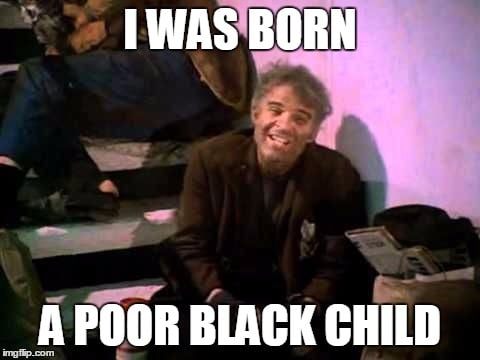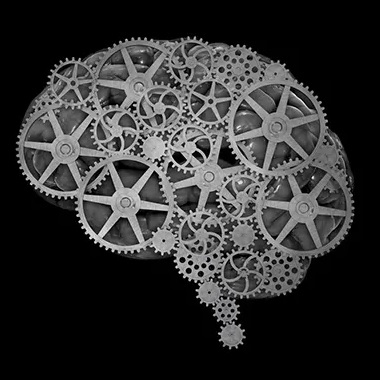Ok, I might as well go first: I wish I could draw. Not at the level where I could make photorealistic portraits, but I’ve always been envious of those who are able to scetch something together in a few minutes that perfectly captures what they want to convey. Sometimes words aren’t enough to express what I want to say, and for those situations I would love to have a simple drawing do the talking for me.
Focusing on the things I need to actually do.
I swear, if even if I was forced to do something at gunpoint, I’d manage to get distracted anyway.Don’t feel bad. Everyone gets distracted with a gun pointed at them.
Robber: “Why does it take so long to stuff money in the bag?” Bank employee: “Oh, that’s what I was supposed to do.”
yes and something to control the demon that makes me want to try it this way when I should not try anything new on the task.
I literally wish I had the ability to practice.
That’s really what all my other answers to this come down to. I would love to write better, be a better woodworker, play music, learn languages, learn programming languages, etc. But my mind just… slides right off it. I can’t bring myself to put in the time necessary to cultivate literally any skill.
I’m the same way. I’ve found that I need another person to keep me accountible so taking lessons has help me. I started drums this year and it’s something I’ve always wanted to do and having a teacher give me things to practice and checking in keeps me going.
This may be old advice, and I can’t speak for music or languages (where I myself have the same issue) but for woodworking and programming this is my experience: Once I get some idea for something I want to build, that becomes the goal of the project, not learning the skill itself. It could be carving a small model boat, or writing a sudoku solver, but at least for my part, once I get caught up in some project, I have a hard time letting it go. That’s as opposed to if I sit down and try to systematically learn a skill.
Some suggestions for projects off the top of my head:
- Some kind of simple encryption/decryption method.
- A nice wooden box to put something nice in (possibly without visible metal parts)
- A sudoku solver
- Model car (maybe with wheels and movable doors)
- A little “river steamer” with a rubber-band driven “propeller” (don’t know what the wheel on the back of a river steamer is called)
- A “peg solitaire” solver (because I was really frustrated at not being able to solve it)
The point is just to find something else that interests you, that can motivate you to learn the skill you want :) good luck!
Wow, this was cool to read! I definitely use the goal of the project to motivate myself to learn how to complete it, but I never realized it until you laid it out. I understand what OP says about the skill “sliding off” but the project is usually complete before that happens and only becomes an issue on revisiting it later. Like my Magic Mirror project that I completed but it’s using the Pi and some software that I don’t remember now. But the mirror is still great, hooked up to a PC with wallpaper engine running.
I wish I could speak a lot of languages fluently.
This is my answer also. I wish I was multi-lingual.
I’m regularly on calls with people for whom English is not their primary language. Almost without fail they apologize for their poor English. I regularly tell those people, “please don’t apologize, you do me that courtesy of communicating with me in my native tongue. I am completely unable to reciprocate that courtesy.”
I’d love to be fluent in Spanish, French, German.
Look into Comprehensible Input. Dreaming Spanish is a great channel/site.
It’s really not difficult to do per se, it just takes a LOT of time. 1500+ hours. But if you can replace the time you spend watching YouTube videos and doomscrolling, you’ll get there eventually. Especially once you reach the point of understanding media in the language you’re learning. You can then go mindlessly watch YouTube again… but in that language lmao.
Check out this playlist for an explanation of the method (turn on subtitles) https://youtube.com/playlist?list=PLlpPf-YgbU7GrtxQ9yde-J2tfxJDvReNf , TL;DW don’t study the language. Don’t do grammar/vocab by rote. Literally just listen to a crap ton of the language. You will learn grammar/vocab naturally with repetition in context. But you must listen/watch at a level you can understand. That starts with content with a lot of hand gestures and simple stories, where maybe you don’t understand the words but you understand the meaning by the rest of the context. After a hundred hours or so you can move on to content with less context clues, and after maybe 400-600 hours start with media meant for native speakers.
Gosh, thank you so much!
That’s the problem with native lingua franca speakers. They don’t have a foreign language that they really have to learn.
If you don’t speak English people are mostly limited to their own country. German is worthless in France. So we all need to learn English, while you don’t have a lot of benefit of actually learning other languages.
To show my point: My team at work is spread over most of Europe. We don’t have an English native speaker in the team and there are maybe a small handful of them in the whole company. Still, we all speak English at work, because it’s the only language everyone knows.
That is a really interesting anecdote I find it both surprising and completely understandable.
I’ve been using italki.com to learn Russian. It’s pretty cool.
That’s a good one, I’d love to be able to enjoy things in their native languages rather than butchered (at best) translations.
Any particular languages?
Not op, but French, Russian, and Japanese. They’re all hard for Americans to learn (vs, say, Spanish or German).
French is considered just about as hard as Spanish, maybe a little harder on the phonetics. German is harder than French or Spanish. Russian is harder than German/French/Spanish, but Japanese would be significantly harder than Russian.
am learn french
China is rumbling in the distance
Russian actually isn’t that bad. It takes time, but I’ve been learning it because my gf is fluent. She calls it an unga-bunga language because literal word-by-word translation sounds like caveman-speak lol
French is very similar to Spanish
Other than ALL, Spanish would be very useful. Japanese so I can watch Anime and not miss half of it because I’m reading subtitles. French so I can cuss at you and sound like I’m quoting a love song. German so I can quote you a love song and sound like I’m cussing at you. And Chinese (mandarin?) because that has a lot of business opportunity.
Go lay down and fall asleep within a few minutes no matter what. I know a few people who can do this and I am so jealous.
Have you tried reading in bed? It’s not just a few minutes but it definitely helps me make the eyes tired and heavy which makes me know when I can close the book and fall asleep in a matter of minutes.
Exercise during the day so you’re physically tired. Either that or get a job on night shift so your sleep schedule is continuously messed up.
I can at times but even if im not asleep I can get into a relaxed state within a few minutes even if im not asleep for half an hour.
See a lot of comments here about creative skills like drawing or singing, and I feel a little bit privileged having skill in both and more besides, on the creative side.
But I can’t really feel good about it, because I have serious problems with math and strict, rule-based stuff.
I really wish I was more logical and structured. I also lack a lot in the department of executive function, being so chaotic and creative. I am really bad at most everything that would actually get me a decent wage. The creative skills are worth nothing (in the sense of getting paid) if you can’t manage to stick to deadlines or sell yourself as an employee or a freelancer, and I keep getting into deep trouble due to miscalculating and misestimating my budgets, timespans, conceptualizing bigger picture when I am thrown into doing small picture stuff, or seeing the small pictures when I’m working with the big picture.
But it’s pretty interesting and fun seeing these different kind of responses. I guess there’s a little bit of a zero sum game here; if one’s good at something, almost always they’re bad on something else. Seems obvious, but somehow I’ve never thought about that.
I think this response is great, because, while I’m on the other side of the fence (theoretical chemist that sucks at anything artistry related) I think it’s a common misconception that math/science/engineering isn’t creative.
I find that misconception both with people struggling to learn it, and often with people teaching it. The reason I bring it up is that, in my experience, the “hard” sciences become both more fun and easy to learn, and more easy to teach, when creativity is encouraged. For my own part, I’m wildly chaotic in the way I solve problems, and my notes are typically a jumbled mess of drawings and scribbles. For my students part, I’ve seen stuff loosen for a lot of people when they’re encouraged to just let their thoughts flow out on their paper, rather than thinking everything through five times first.
By all means: There’s a difference between math and art, but I think a lot of maths teachers and students could have a better time if they allowed themselves to think more artistically, especially those that are well inclined to it.
I wish I was better at debate. My wife always comes out ahead in arguments. Maybe it’s because she had a debate class in high school and I never did. I always stumble over my arguments and they are easy to pick apart. Not that I would use that skill against her. I’d still probably let her win, haha. But it would just be a nice skill to have in life.
deleted by creator
Being able to detect logical fallacies will help a lot, but it’s not a perfect solution either. If an argument follows a flawed logic, it might also have factual issues as well. The thing is, there are exceptions.
Some people actually have something factual to say, but they mess up the wording and end up saying something paradoxical. Someone trained in detecting logical fallacies might dismiss the argument as complete nonsense, even though the core of the argument was true.
Also, the reverse is true. If you know what you’re doing, you can craft a beautiful and logical argument that isn’t actually grounded in reality. Someone not trained to wield this sword, may be defenseless against it.
These kinds of arguing tools are definitely useful, but they don’t always lead to the right answer. Mistakes happen on both sides of the debate.
Motivate myself.
It’s weird. I go to work, I’ll get the job done. Something comes in my inbox that shit is covered.
I’ve been home for 3 hours now, and this is the most I’ve done tonight since I got home. Not even video games. Fuck haven’t gotten chores done. What the hell is that skill that I have at work that I don’t have at home?
My guess would be the sense of fulfilment.
At work you have a purpose, and so you fulfil it.
At home, to motivate myself to do the chores, is to find a rationale for it to be done.
- Laundry? So I can wear them to work / be ready to look nice when going out.
- Dishes? So I can have nice big servings of meals and be able to cook.
- Cleaning? So I can enjoy a nice, cleaned house without getting dirty when I walk around (walking barefoot inside is a good indicator when to clean)
Etc. Etc. Plus it helps to enforce the thought that I’m “adulting”, like the kid in me and others would say.
Programming. I understand it as a concept, but have no ability to sit down and write code.
I’m a hobbyist programmer myself. I’ve picked up a few languages along the way, and by far the best approach I have found to learning is a simple but real practical use case. Find the smallest task you want your program to do, break it down into even smaller subsections, and then start to figure out how to transform it into code. It usually takes less code and knowledge about a language than you think.
A few years back I got really into Python for a few months as a complete newbie. One day, when I felt ready, I told myself I would put all the python skills I picked up and build a small program that would generate random, solvable sudoko puzzles. After a few weeks trying everything and not getting anywhere, I gave up programming.
Moral of the story is I probably that I should have taken it a bit slower I guess
To be fair, I’m a decent programmer: I spend a significant portion of my workdays programming all kinds of things. Writing a program to generate sudoku’s with a unique solution, without copy pasting a bunch of algorithms, but actually making it all up yourself definitely sounds non-trivial to me.
(Read: That sounds like a really hard beginner project, and you should be proud for even trying, and you shouldn’t give up :) )
Here’s another quick tip to get anyone started: Find some code written by someone else, and modify it.
Depending on the language, you might be able to just read what it says and experiment with what happens when you change some details here and there. If the code does something that you’re interested in, you’ll also have the motivation to spend a few hours tweaking the code, or even reading the documentation.
Also, nowadays you can ask GPT what different parts of the code does. You can drill down with follow up questions until you understand how a specific detail works in the language you’re working with.
this is exactly how I started. I looked at my job to see what I can do to solve an issue we were having using python and, even though my final script was a complete mess, it worked. learned SO much along the way
I am a programmer. It’s like riding a bike, the training wheels are follow along projects on Udemy and YouTube. Don’t try to start with massive projects for dream ambitions, make a button fetch some data when clicked then move on from there.
Musical talent. I’d love to be able to sing and play guitar but I have no aptitude for it at all.
Music. Probably singing and acoustic guitar. I really like singing, even if I’m really bad at it, and I like getting lost in music. Yes I can listen to some music, but I feel like doing it yourself gives it something more. Someday I’ll get classes haha, I need more hours in my day
I’ve been playing guitar and singing for 20 something years. When you really hit a groove and nail a song, it’s an indescribable feeling. You kind of travel outside yourself. Now, when you get others involved and make music, it’s transcendental.
I have been blessed with zero rhythm or musical ability. I’ve never been able to clap on beat for example.
We watch family feud and I can be clapping along (to make my wife laugh primarily) all on my own not even beat with the audience, and I don’t even notice I’m off!
The great irony is I have much better hearing than the average person.
Learning to say no. Many times or not to say all my life I have always tried to get along with everyone, and I always say “Yes” to everything, committing myself to things I really don’t want just because I don’t know how to say no.
+1 on this. it look easy from outsider perspective until you are in that shoe and feel how much courage/skill it need to say no.
People pleaser, hey?
Turn off my ADHD for a moment / focus on something cognitively induced and not “I NEED DOPAMIIINE”
I wish I was a better piano player
I’m a competent musician in many instruments but I could never get the hang of using my left hand for accompaniment
I’m a guitarist myself. Piano is certainly up there on the list of skills I wish I had.
Dude, piano is so simple compared to guitar in a theory sense. The notes are all in a row. If you learn the fretboard on guitar first, it transfers so easily.
I wish I could write better…
Bad handwriting literally runs in my family, and as hard as I’ve tried I’ve never been able to improve it. I’ve resorted to writing in block, and even then it still looks scruffy.
Yet some of my colleagues have wonderful handwriting, and it makes me wonder why I couldn’t have been born with better hands.
I’m going to start trying to learn how to draw in the New Year, so I hope that helps in some way.
If you do practice, thicker pens or markers can make shaky printing look nicer. Maybe a fountain pen or a thicker roller pen might help a little.
Here’s what changed my handwriting: turning it into a hobby
At school, writing stuff all the time was more like a job, so naturally I wasn’t really that interested in it. However when you don’t have to write a ton of stuff every day, you can approach it form a different angle. Go to the library and find a book about calligraphy. Pick a style you find interesting, and start practicing.
Motivation is key. Don’t write stuff you hate in a style you despise. That’s just basically a long way to say: school. Let’s say you fall in love with textura quadrata, so you start practicing that style instead of cursive. Eventually you’ll try italic, humanist, uncial and other styles too. Then you’ll start writing longer things; not just shopping lists, but journaling too. After a while, you start to notice that your handwriting has improved.
BTW don’t go with a dip pen at first. Instead, get a Pilot Parallel Pen, because it’s good for for most styles. Once you’re familiar with a specific writing style, you can start learning how to manage the ink flow of a dip pen, because that’s a completely different ball game.
I’ve found that people who worry that they have bad handwriting typically have very good, legible handwriting. This is true with a lot of things actually. If you care about it, chances are you’re above average already. It’s only people who don’t care and thus you don’t hear from at all about it who are truly bad at something.
I wish I could just decide to sleep. I wish I could go “I have to be awake in 10 hours, I will sleep now.” Nope. I can go forward but not backward. I’ve lost count of the number of times I’ve wrapped around the clock, staying up for 20 hours and sleeping for 10. The abiltiy to go “man I don’t need to be up at 1AM, I have shit to do in the morning” and go to bed at 11 and actually sleep. That would be useful.




















